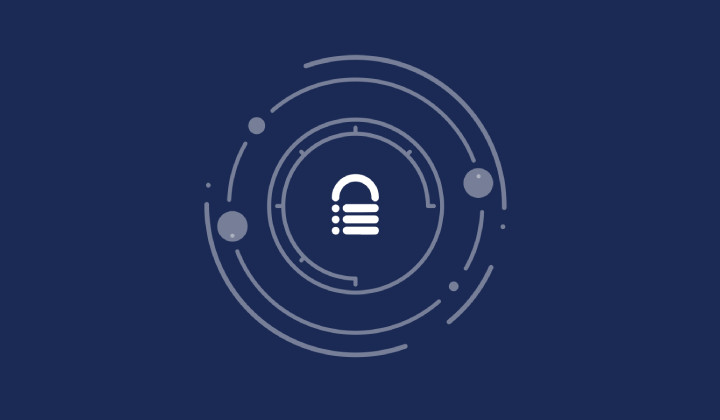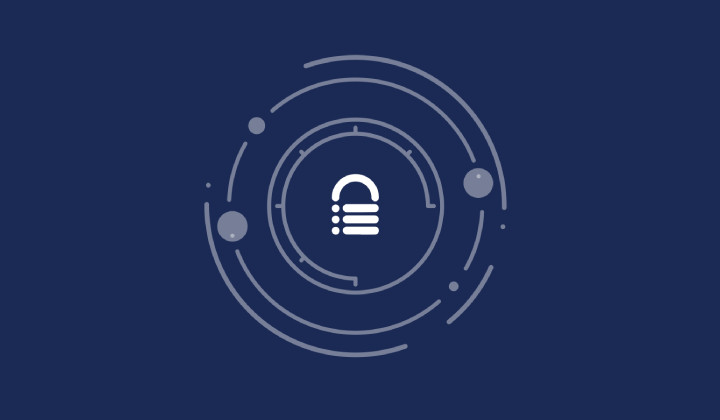Web Host Security: How do Web Hosts Affect Website Security?
by
7-layers of Security for Your WordPress Site
Your website needs the most comprehensive security to protect it from the constant attacks it faces everyday.

When you are building a website, you naturally look for a web host to run your site. But have you wondered what the role of these web hosts is, once your website is up and running?
Are your web hosts responsible for your website security? Could they be the reason for a hack or malware getting on your website?
While it may be easy to place blame on your web hosts, most security incidents originate from security gaps such as vulnerable plugins and themes on your own website.
But web hosts can also affect your website security, and it is important to understand how, so that you can ensure that your website is entirely secure.
TL;DR: Web hosts are responsible for hosting your website. So naturally, they affect your website security. But it is important to understand how and to what degree. Security solutions like MalCare can help you bridge any gaps in your website security and harden your website.
The role of a web host
The overall hosting environment of your website is managed by the web host. The hosting environment, in this context, is the environment that you pay for with your hosting plan.
For example, If you pay for a shared hosting plan, then your website shares a server with other websites. The web host is responsible for any issues that may arise in this environment, which are essentially their servers.

Think of your website as being an apartment in a building. The building security is responsible for making sure that a thief cannot gain entry to your apartment through loopholes in their security.
However, you are responsible for your apartment’s security. so if you let someone in through building security and they turn out to be a thief, that’s on you (the website). If you leave a window open, and a thief gets in, that’s also on you.
A web host will look after the physical and digital security of their servers. But any issues that may arise due to vulnerabilities in your website, are your responsibility.
The primary responsibility of a web host is to provide you with functional and secure hosting services. For this purpose, they use various tools and software like the cPanel, Apache, or MySQL.
Can your web host be responsible for malware?

Over 95% of the total hacks originate on the website itself. It could be a result of weak credentials, but if you have malware on your website, chances are that it came directly through the vulnerabilities in your website.
Vulnerabilities are lacunas in plugin and theme software, which enable an unauthorized person to get access in ways they are not meant to. There is no software that is bulletproof, not even Google’s code nor those used by banks. That’s why there are protocols in place to mitigate the risks of attacks.
Therefore it is theoretically possible for web hosts to affect your website security. Just like plugins and themes on a website can have vulnerabilities, the software used by the web hosts can also have vulnerabilities. And when that happens, all the websites on the network are vulnerable to attacks.
Even cPanel is not entirely invulnerable. Hackers can and have attacked cPanel to gain access to web hosts in the past. Not just this, but sophisticated attacks can even allow hackers to hijack user accounts through an attack on the web host. Again we stress, this is very uncommon.
So while rare, web hosts getting hacked is not unheard of. Even big names such as GoDaddy, BlueHost, and HostGator have been hacked in the past. In some cases, the severity of the hacks has been so high that the customers have had to pay for it.
For example, Blue Layer Media was hacked in 2012. The hackers managed to wipe out their entire servers and the company was left with no data whatsoever. As a result, they had to shut down their services permanently and leave their customers to fend for themselves.
But Blue Layer Media is the rarest of rare cases. That is very important to remember. web hosts take every possible precaution to ensure that this does not happen to them. And most hacks, if they occur, are contained in time thanks to protocols.
How Does Web Host Affect Your Website Security?
There are different kinds of hosting services available for website owners. Two of the most popular ones are shared and managed hosting services.
Shared hosting plans are cheaper because you share server space with other websites. Managed hosting, on the other hand, offers personalized services, wherein a dedicated server is leased to you. Each of these has its pros and cons and can affect your website security in the following ways.
Firewall protection
The firewall of a website is one of its primary security measures. Unless you invest in one, your website would not have a firewall.
However, managed hosting providers often make a network-level firewall available to their customers. These network firewalls are security measures that filter any requests coming to your website so that no one can gain unauthorized access to your website.
This is a perk of managed hosting, but you can also invest in a strong firewall if you have a shared hosting plan. Intelligent firewalls like MalCare ensure that your website is safe from attacks and malicious requests.
Malware scanning
While some web hosts do offer malware scanning on managed hosting plans, the scanning efficiency and accuracy differs from one web host to another.
Not all web hosts are capable of identifying complex malware hidden in your website. So you need to invest in a security solution like MalCare which is intelligent and efficient.
MalCare has an intelligent core that constantly analyzes websites and learns from them in order to identify even the most complex of the malware on your website. Investing in a security solution like this will provide overall security for your website.
Access to core files
Some web hosts lock your WordPress core so that no one can fiddle with your website. However, this also means that you cannot make any changes to your website either.
And in case you must, you will have to get in touch with your web host. While this is a measure taken in order to enhance your website security, it also makes website management inconvenient.
Related resource: Web host suspended site
Backup options
Backups are a hail mary for website security. In case that you have a severe hack that cannot be salvaged, you cannot afford to lose all your data. This is where backups come into the picture. Frequent and regular backups allow you to restore your website in the worst-case scenario.
Certain web hosts offer backup services, but if the web host servers are attacked, your backups will be affected too. The best way to secure backups is on external servers.
What can you do?
While it may seem out of the scope of your control, you can take steps to enhance your website security and ensure that your web host is not the cause of security concerns for you.
The first step was to understand how web hosts can affect your security. And now that you are aware of it, let us understand how web hosts secure their infrastructure.
Web hosts are primarily responsible for the security of their infrastructure, processes, and customers. In order to deliver on that front, web hosts have a range of security practices that are standardized for a minimum scope of error. Given that these practices are for security purposes, they are not available to the general public.
However, there are certifications and compliances that guarantee a certain standard of security within web hosts such as the ISO 270001, SOC 2, or PCI-DSS.
These certifications are provided by external and impartial authorities that tell you that a certain company follows given security standards. Since you cannot be privy to all the processes that your web host follows, the certifications denote a certain level of reliability.
So what can you do to ensure your website is as secure as it can get?
Choose your web host wisely
When choosing your web host, make sure you do a little research and not get the cheapest hosting available. Check for security compliances or certifications that the web host is certified with.
However, most web hosts do not carry certifications, in which case you can conduct your own research on the said web host.
Check for customer reviews, look at their security history, notice how they have handled previous security incidents, and then decide. Reliable service providers tend to be transparent about their activities and intervene early to contain any attacks or hacks.
Invest in a strong security solution
Whatever be the source of an attack, it is best to be prepared. Investing in a good security solution like MalCare will offer you the protection of a firewall, timely alerts, regular scans, auto cleanups, and security from future attacks.
This is not just a precaution but a necessity in order to avoid hacks, attacks, data loss, and losses arising out of these issues.
Back up your website – on separate servers
Many websites have lost their data to hacks and attacks, even commercial and well-managed ones. You need to be prepared for this possibility and back up your website on external servers.
Even though most web hosts offer a backup service, this isn’t the most reliable solution. Given that if a web host gets attacked, everything on their servers is compromised, your backups need to be on completely separate servers, so that even in the worst-case scenario, your data is safe.
Final Thoughts
Your web host is an important factor in your website security, just not in the way that is commonly assumed. It is important to pay attention to your hosting provider, their practices, your hosting plans, and other requirements. Making these decisions thoughtfully will not only offer peace of mind, but also enhance your website security.
If you are planning to migrate to a new hosting provider or planning on building a new site and security is one of your primary concerns, we’d recommend you do good research before settling on one.
All this research can also help you find a reliable hosting solution that is reasonably priced, given that you now understand the basics of a web host’s function and responsibility.
If you want to learn more about what your website needs, you can run a security audit on your website before you make these decisions. We hope you find this information useful to make a sound decision regarding your web hosts.
FAQs
How secure is web hosting?
Web hosting, by itself, is quite secure. It is one of the primary responsibilities of a web host to provide a functional and secure hosting environment to its users. However, web hosts use a range of software and tools to offer various services, and some of these tools can harbor vulnerabilities that may be exploited.
Additionally, if you are using a shared hosting plan, the risks of malware and attack are higher than that on a managed hosting plan, since you share resources and server space with other websites.
Does your choice of web host affect your website security and performance?
Yes, your web host determines the degree of security as well as the performance of your website. Additionally, your web host’s practices and processes can also make a huge difference in times of crisis such as a hack.
Therefore, it is important to choose your web host wisely. Look for credentials such as compliances and certifications, and notice how they have handled hacks in the past. This should give you a fair idea regarding your potential web host.
Is shared hosting bad?
Shared hosting isn’t a bad option. However, shared hosting does entail sharing of server space and resources. This could lead to potential hacks spreading across websites on the same server.
You can secure your website on shared hosting plans by using a security solution like MalCare, which will protect your website from any intrusions or unauthorized access.
How does the security of the host affect the security of the web server?
If your web host doesn’t follow the right processes when it comes to security, it could affect your site in terms of security as well as speed. It is important to find the right web host that follows compliances, routinely manages security of its servers, and ensures safety practices when using third-party apps and software.
What do Web hosts provide?
The primary responsibility of a web host is to offer a safe and efficient hosting environment to its customers. They are also responsible for the security and performance of your website to a certain degree.
However, web hosts are neither responsible, nor do they provide measures, for when your website is attacked by external factors due to vulnerabilities on your site.
Category:
Share it:
You may also like

MalCare Ensures Unmatched Protection Against User Registration Privilege Escalation Vulnerability
Imagine discovering that your WordPress site, which should be secure and under strict control, has suddenly become accessible to unauthorized users who have the same administrative powers as you. This…

MalCare Ensures Proactive Protection Against WP-Members XSS Vulnerability
MalCare continues to protect its customer sites from all kinds of attacks, even the ones exploiting zero-day vulnerabilities. The recent stored cross-site scripting (XSS) vulnerability found in the WP-Members Membership…
![Top 9 ManageWP Alternatives To Manage Multiple Sites Easily [Reviewed]](https://www.malcare.com/wp-content/uploads/2022/12/malcare-default-image.jpeg)
Top 9 ManageWP Alternatives To Manage Multiple Sites Easily [Reviewed]
ManageWP is a popular name in the WordPress maintenance plugins market. People love how much you get for a free plan, how easy it is to set up, and how…
How can we help you?
If you’re worried that your website has been hacked, MalCare can help you quickly fix the issue and secure your site to prevent future hacks.

My site is hacked – Help me clean it
Clean your site with MalCare’s AntiVirus solution within minutes. It will remove all malware from your complete site. Guaranteed.

Secure my WordPress Site from hackers
MalCare’s 7-Layer Security Offers Complete Protection for Your Website. 300,000+ Websites Trust MalCare for Total Defence from Attacks.








